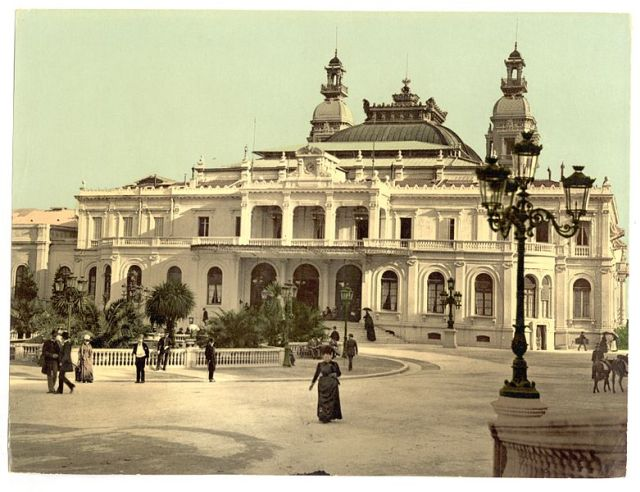The History of the Origin of Casinos: How Did Casino Games Go Online?

By Contributing Author
Gambling has been with us since the dawn of history, and it’s always been controversial. Even today, many modern countries like Norway have no land-based casinos to accommodate punters. Since 1994, the online casino has solved this problem. Our resident expert at Casinopånett, Nina Olsendburg at odds sider, helped us research the origin of casinos and online gambling.
Brief History of Casinos
People have always played games of chance for entertainment. Archaeologists have found gambling tiles and dice in archaeological sites dating back to 2500 BC. Still, the first legal, regulated casino as we know it only opened in 1638 in Venice.
The First Modern Casino
The Il Ridotto (private room) was opened in the San Moisè palace to provide gambling to Venice’s citizens during carnival. Before this, gamblers used houses for gambling, and there was no regulation or taxation. The high stakes and strict dress-code ensured that only the aristocracy could gamble at this establishment.
The Idea Spreads
Although the first casino was closed in 1774, the idea of legal, regulated, and taxed casinos had already spread through Europe. Punters coined the term casino (a small house) sometime in the 1700s. At that time, most gambling took place in homes that offered shows and food.
By 1765, Cardinal Mazarin had sanctioned the first legal casino in France, hoping to use the taxes to replenish the state treasury. By the 1800s, Europe had many luxurious casinos catering to those who could afford the pastime. Monte Carlo and the Principality of Monaco became prominent and are still considered a part of casino history.
North America
The idea also spread to North America, with cities such as New Orleans forming the gambling industry’s backbone. It wasn’t until the 1930s that gambling was legalised and regulated in some states. Nevada was the first, and New Jersey followed by allowing gambling in Atlantic City.

Casinos Move Online
The next giant leap in the casino industry was in 1994 when Antigua passed the Free Trade and Processing Zone Act. The act allowed Antigua and Barbuda to grant licences to online casinos.
The Online Casino Era
The Free Trade and Processing Zone Act set the stage for the online casino industry. We still needed a few technological developments before it could grow into the giant it is today. Companies quickly recognised the potential, and technology advances didn’t take long.
First Online Casino
Martin Moshal, a South African entrepreneur, launched a small software developer registered in the Isle of Mann during the same year. Microgaming provided the first software. To this day, casino games go online at the Gaming Club, which we accept as the first online casino. All online casinos needed were safe payment options and more widespread access to the internet.
Safe Money Transfers
Two Canadian brothers, Mark and Andrew Rivkin, conceived CryptoLogic in their parents’ basement, licencing their software through Wagerlogic in 1995. They launched Intercasino in 1996 with secure transaction methods for real-money gambling. Casinos were now truly online.
Popularity and Competition Grow
The popularity of online casinos grew, and so did the competition. Online casinos started offering welcome bonuses and a wider variety of games to gamblers in an attempt to stay ahead of the competition.
As technology caught up to the booming industry, more game developers emerged, each vying to create the best gameplay, graphics, and jackpots. Today, online casinos offer more variety and better odds than land-based casinos.
Since Playtech launched the first live dealer games in 2001, online punters can enjoy the total casino experience. Casinos also started making games available for mobile devices. Playing on mobile allowed bettors the convenience of playing anytime and anywhere.
Recognising the Need for Regulation
The need and desire for regulation grew with the industry. Governments started seeing the taxation potential, and operators saw the need for independent fairness testing of games to maintain their reputation. In 2003, eCOGRA became the first independent testing lab in the industry. Countries started to update gambling laws in the early 2000s to accommodate online gambling, and more jurisdictions started issuing online gambling licences, allowing them to tax the industry.
Conclusion
The idea of the online casino has grown exponentially from very humble beginnings. Entrepreneurs developed the first software from homes and basements with very few resources, allowing online casinos to generate billions of dollars per year.
The industry and its resources are still growing, allowing developers to bring an affordable casino experience to 25% of the world’s population. Casino gambling is no longer the preserve of wealthy aristocrats in tuxedos with high stakes. It’s now available to anybody who wants to try their luck at a game of chance.



